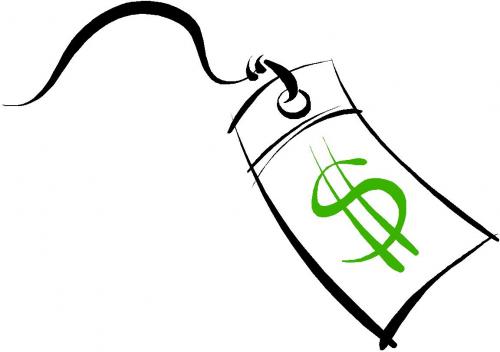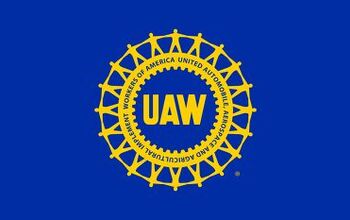Brazil: VW And GM Squander Brand Equity

Wolfsburg must be fuming. Among all the good news coming in from all corners of the earth, there’s a market that insists on being the proverbial thorn in their side. That’d be my little ole Brazil, which is, en passant, the world’s fourth largest. And it’s a market where Volkswagen has been nearly forever. Well-known Brazilian automotive journalist Fernando Calmon, writing for the just-auto website, reports a major shakeup in automotive brand values in Brazil (can you feel the ground shaking a little?). Mr. Calmon, citing the Brand Finance consultancy, reports that the most valuable car brand in Brazil is…
Fiat.
Yes those little Italian rascals have taken over from VW and GM. The study refers to 2009 and Fiat took first place among car makers by default. It retained the 10th place (among all brands present in the Brazilian market, not just cars), it earned in 2008. GM, however, which had ranked 8th in 2008, dropped to 13th in 2009. The big shocker though was perennial leader VeeDub. Its fall was even worse than Chevy’s. Just two years ago it was 4th. Last year it was just 12th. Brand equity of all car makers depreciated faster than a new car driving off the dealer’s lot. Only Fiat held its value.
Among the reasons for VW’s fall from grace is the trouble facing its mission critical Gol. Market leader for the past 23 years, it was totally re-skinned, re-engineered and re-launched last year. As a result, improved sales, the chance to overtake Fiat and again be on top, but then…disaster! 4 recalls in little more than a year really took its toll on the little car. Red card for the Gol. These troubles no doubt helped pave the way for Fiat’s mission critical Uno. The Gol is now in the fight of its life for first place. Among other cars in VW’s lineup, most are underperforming. Just the Fox is conquering sales. The recently launched Amarok may well be a flop. Mr. Calmon also notes that VW is having difficulties with its dealer network. Complaints and unhappy customers abound.
According to the Mr. Calmon’s report, GM’s woes are of a different nature. First off are worried Brazilian consumers concerned over headquarter’s bankruptcy and subsequent nationalization. That can take the luster off many a brand. Also cited are persistent complaints over perceived drop in quality. Call it a perception gap, but Brazilian consumers are calling it like they see it. When GM do Brasil’s products came from Opel, Brazilians were proud to drive the bowtie’s offerings. Now that they are all being substituted by a more easterly source of engineering, color Brazilians unimpressed. So negatively impressed that it has precipitated the General’s downfall. Chevy has announced measures to correct this though that remains to be seen. Not to mention to be felt by the Brazilian consumer.
The Brand Consultancy study rings true. It reflects what’s going on in our market. A unique, a little offbeat market that is, nonetheless, one of the world’s most important. Not only in terms of size, but also in potential for growth. Makers should be wary and judiciously study what’s going on here. An important part of their future is here. This market is slowly, but surely maturing. It is also becoming less and less tolerant of mistakes and blunders.

More by Marcelo de Vasconcellos
Latest Car Reviews
Read moreLatest Product Reviews
Read moreRecent Comments
- Jeff Self driving cars are not ready for prime time.
- Lichtronamo Watch as the non-us based automakers shift more production to Mexico in the future.
- 28-Cars-Later " Electrek recently dug around in Tesla’s online parts catalog and found that the windshield costs a whopping $1,900 to replace.To be fair, that’s around what a Mercedes S-Class or Rivian windshield costs, but the Tesla’s glass is unique because of its shape. It’s also worth noting that most insurance plans have glass replacement options that can make the repair a low- or zero-cost issue. "Now I understand why my insurance is so high despite no claims for years and about 7,500 annual miles between three cars.
- AMcA My theory is that that when the Big 3 gave away the store to the UAW in the last contract, there was a side deal in which the UAW promised to go after the non-organized transplant plants. Even the UAW understands that if the wage differential gets too high it's gonna kill the golden goose.
- MKizzy Why else does range matter? Because in the EV advocate's dream scenario of a post-ICE future, the average multi-car household will find itself with more EVs in their garages and driveways than places to plug them in or the capacity to charge then all at once without significant electrical upgrades. Unless each vehicle has enough range to allow for multiple days without plugging in, fighting over charging access in multi-EV households will be right up there with finances for causes of domestic strife.


































Comments
Join the conversation
Yeah - keep the Brazil/South America stories. I think the larger picture (than just the USA perspective) is valuable.
Great Insight Marcelo....